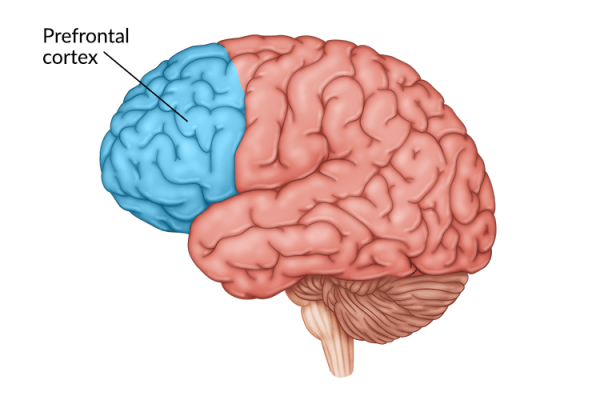After sustaining a traumatic brain injury (TBI), survivors may experience feelings of sadness, hopelessness, or prolonged fatigue, which are all common symptoms of depression. It is important to understand the link between brain injury and depression to identify the signs and seek proper treatment methods.
While depression may be caused by various contributing factors, a TBI can increase the risk of developing it. After sustaining a traumatic brain injury there is no determined timeline on when symptoms of depression may arise. However, the resulting effects of depression can interfere with daily activities and life as a whole, but fortunately there are ways to overcome it. For this reason, it is important to be able to recognize the signs and symptoms of depression in yourself or a loved one.
This article will discuss the connection between brain injury and depression, exploring the causes, symptoms, and most effective treatments.
What Causes Depression After TBI?
Depression is characterized as a major mood disorder that can negatively impact your daily activities and overall quality of life.
Brain injuries, from mild concussions to more severe trauma, can all increase the risk of developing depression. In fact, studies show TBI survivors are two to five times more likely to develop depression than non-TBI individuals.
While the exact cause of depression after brain injury depends upon the unique circumstances of every survivor, scientists have identified a few contributing factors, which include:
- Physical changes in the brain. When the frontal lobe, an area of the brain responsible for regulating emotions, sustains an injury, it can result in post-TBI depression. This is due to a disruption in the balance of neurotransmitters, or chemical messengers.
- Emotional struggles. Depression may also arise from a survivor’s mental and emotional struggles, especially when adjusting to life after brain injury, which may involve adjusting to limited abilities.
- Genetics and other factors. Individuals with a family history of depression may be at a higher risk of developing depression after TBI.
Make an appointment with a medical professional to obtain a proper diagnosis and to determine if the cause of depression is the traumatic brain injury or other contributing factors.
Common Signs and Symptoms of Depression After TBI
An adequate diagnosis of clinical depression usually has two requirements: at least two weeks feeling sad or apathetic, and experience five or more types of symptoms including:
- Extreme fatigue
- Speaking or moving more slowly
- Decreased concentration or indecisiveness
- Loss of interest or pleasure in usual activities
- Insomnia or excessive sleeping
- Significant weight loss or weight gain (about 5% percent or higher in a single month)
- Motor agitation (unintentional or purposeless motions)
- Excessive crying or irritability
- Feelings of worthlessness or guilt
- Suicidal thoughts or death
The National Suicide Prevention Lifeline provides free and confidential emotional support 24/7 to everyone in the United States. If you are having thoughts of suicide, please call or text “988” with your phone to be connected with a trained counselor. This new 3-digit dialing code is active across the United States. The previous Lifeline number of 1-800-273-8255 remains available to use as well.
Sometimes, depression symptoms may look similar to other conditions such as adynamia, or lack of motivation. However, these are two different effects of TBI that are treated separately, according to the causes they stem from.
One main factor in differentiating between depression and other conditions is the loss of interest in your previously favorite activities.
It’s understandable after having sustained a brain injury to not enjoy loud or crowded places, especially if the brain is sensitive to noise. However, if you are persistently in a depressed mood or have no interest in previously enjoyed activities, this may be a sign of depression.
How to Cope with Depression After Head Injury
There are several treatment methods to help treat depression after brain injury. Two of the most implemented treatments include antidepressant medication and psychotherapy.
The following are some of the most effective types of medication and therapy to help treat depression.
Medication
Antidepressants are amongst the most common medications given to individuals with depression. It helps regulate the level of neurotransmitters in the brain. They can be taken for a few months, depending on the severity and your doctor’s recommendations.
Everyone reacts differently to antidepressants so it’s important to keep track of any side effects you may experience and consult with your doctor or psychiatrist.
There are also several classes of antidepressants that can create a different impact on the brain. Two common types are selective serotonin reuptake inhibitors (SSRI) and selective norepinephrine reuptake inhibitors (SNRI).
SSRIs are one of the safest and most effective medications for TBI survivors. These tend to have minimal side effects and may even help improve cognitive function. For example, two popular antidepressants prescribed to treat depression are Fluoxetine hydrochloride (Prozac) and Sertraline (Zoloft). Fluvoxamine (Luvox) can also help treat depression as well as obsessive compulsive disorder, another potential secondary effect from brain injury.
Sometimes SNRI are used to treat depression after brain injury, such as Venlafaxine (Effexor), which is also used to treat anxiety and panic attacks. However, because SNRI are newer drugs their side effects are still undergoing research.
Certain classes of antidepressants such as monoamine oxidase inhibitors (MAOI) should be avoided when possible because they can cause sedation and worsen cognitive function.
Cognitive-Behavioral Therapy
Psychotherapy, also known as talk therapy, is one of the best approaches to treating depression and other mental or emotional difficulties after TBI. While there are various forms of psychotherapy, the most effective treatment for brain injury survivors is cognitive-behavioral therapy (CBT).
One of the goals of CBT is to get to the root of cognitive and behavioral difficulties after brain injury based on three core principles: 1) beliefs create feelings, 2) feelings dictate behavior, and 3) behavior reinforces beliefs. Many treatments focus on helping survivors become more aware of their mental state and uncover unhealthy thinking patterns.
For example, a survivor struggling with depression after TBI may have negative beliefs, such as worthlessness or guilt. A CBT therapist can help the survivor safely explore underlying feelings that are triggering depression. Two common approaches to help survivors achieve this are cognitive restructuring and behavioral activation.
Cognitive restructuring is a technique that helps survivors learn how to identify “automatic” or irrational thoughts, and address them before allowing them to take over their actions. This can help survivors interpret thoughts with a more neutral, positive approach.
Behavioral activation is another technique that helps survivors initiate and plan positive activities to improve their mood. This can include simple activities such as going for a walk or meditating. Behavioral activation can also help target harmful behaviors that can increase symptoms of depression or other disorders such as social isolation or inactivity. This technique is especially attractive for brain injury survivors struggling with adynamia, or low motivation.
While there are various treatments for brain injury and depression, some survivors may benefit from a combination of methods to enhance improvement. Consult with your doctor or psychotherapist to find the best approach(s) for you.
The Benefits of Positive Psychology After TBI
In addition to medication and talk therapy, another method used to help with depression after brain injury is positive psychology.
Unlike traditional psychology, positive psychology focuses on forward-thinking and expanding on positive, therapeutic processes. It aims to help survivors create positive thoughts and feelings, like gratitude, and improve overall mood by rewiring the brain through neuroplasticity.
Neuroplasticity is the brain’s ability to rewire itself and improve certain functions. It can be summarized by the phrase “you are what you repeatedly do.” Positive psychology aims to harness neuroplasticity by training your brain to focus on constructive thoughts and boost positive feelings.
A simple, yet effective, positive psychology practice is writing in a daily gratitude journal. At the end of each day, write down three good things that happened to you, or write three things that you are grateful for. This will help train your brain to seek out and notice things that are positive.
Overcoming Depression After Brain Injury
There are many secondary effects survivors may experience after brain injury and depression can be one of them. Fortunately, there are treatment methods to reduce these effects and improve your quality of life.
Consult with your doctor or therapist first to learn how to identify the symptoms of depression or other disorders and obtain a diagnosis, if any. Your medical team can create a treatment plan most suitable for you. This approach may include a combination of medication, cognitive-behavioral therapy, and positive psychology.
Understanding the link between traumatic brain injury and depression is a vital aspect of TBI recovery for those who begin to feel prolonged sadness or disinterest in their previous activities. With the proper medical care and treatment techniques, you may be able to overcome these effects of brain injury depression and return to your most favorite activities.









